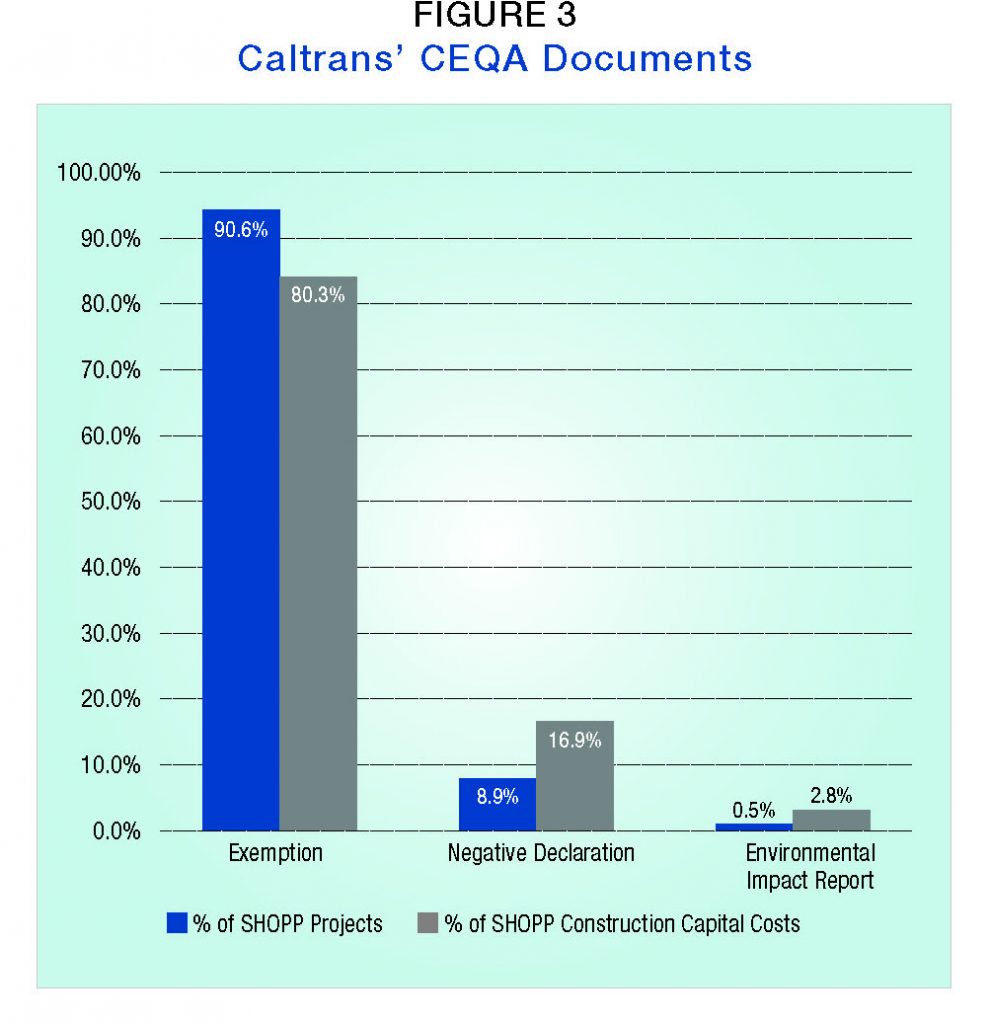The California State Senate Office of Research just released a new report examining data from the state’s transportation department, to find out how the California Environmental Quality Act (CEQA) affects transportation infrastructure projects.
As you’ll recall, CEQA mandates environmental review for major projects and feasible mitigation for significant impacts. Industry critics often blame CEQA for unnecessarily slowing vital projects.
The results from the research? CEQA barely registers when it comes to rehabbing and maintaining transportation projects. As you can see from the chart below, between 80-90% of projects were exempt from CEQA altogether, while only between 0.5 and 2.8% had to undertake full environmental review. The rest received negative declarations of impacts.
 The Office of Research obtained the data from Caltrans for 751 transportation projects from the State Highway Operation and Protection Program (SHOPP) program, which prioritizes everything from maintenance to rebuilding bridges. The projects all completed construction in fiscal years 2014 through 2017. The data included information on costs, duration, and the resulting CEQA documents.
The Office of Research obtained the data from Caltrans for 751 transportation projects from the State Highway Operation and Protection Program (SHOPP) program, which prioritizes everything from maintenance to rebuilding bridges. The projects all completed construction in fiscal years 2014 through 2017. The data included information on costs, duration, and the resulting CEQA documents.
Together with an earlier report showing how minimal CEQA litigation is when it comes to state-sponsored projects, plus the Rose Foundation report showing minimal litigation rates statewide, this report is further evidence that CEQA is simply not a major barrier to California’s transportation infrastructure investments.
To be sure, rehab and rebuilding projects are much less likely to face CEQA review issues than a new transportation project (such as high speed rail, which has been the target of substantial litigation). But data like these are helping to paint a clearer context for policy makers who hear anecdotes of CEQA abuse. Because when we start looking at the broader context, CEQA appears to impose relatively minimal costs in the aggregate.


